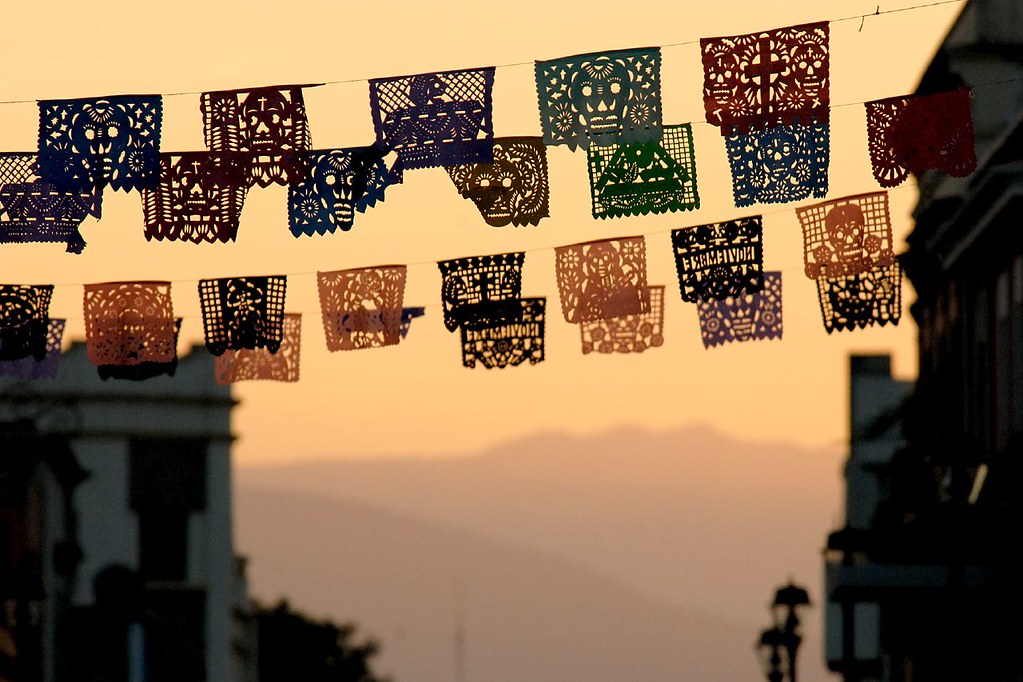When religious missionaries arrived from Europe in Mexico, they attempted to synchronize the pagan practices of the natives with the Christian faith in liturgical celebrations. Mexican festivals are dominantly associated with Christian feast days. The month of December is filled with celebrations of these Mexican festivals.
A Season of Mexican Festivals

Mexico is primarily a Catholic nation. Although its government does not recognize it as an official religion, more than half of the population identify themselves as Catholics. There are plenty of Catholic churches, religious shrines, and pilgrimage sites all over the country. Every year, thousands of people visit the Shrine of Our Lady of Guadalupe. This sacred image of the Blessed Virgin truly made a mark in the nation’s history. You will not know Mexico without knowing the story of Our Lady of Guadalupe.
Throughout the Christmas season, Mexican festivals are being celebrated in honor of saints and religious icons. San Antonio Abad is one saint whose feast is celebrated in Mexico on January 17. The Mexican festival is marked with pets adorned with flowers. He is known as the patron saint of farm animals. The Feast of the Immaculate Conception is celebrated in January in the city of Morelia for several weeks. Outside of the Christmas season, Mexicans celebrate a pre-Lenten carnival and the Easter festival.
From Guadalupe to Bethlehem
Christmas in Mexico begins early. It starts with the celebration of the feast of the nation’s patron saint. The Catholic Church celebrates the Feast of Our Lady of Guadalupe on December 12. A Mexican festival in honor of this Marian image is held in Mexico on this day. Guadalupe is a place in Mexico where the Blessed Virgin Mary is said to have appeared to Juan Diego in 1531. Mexicans hold this event of great importance and consider the Marian image as a national symbol. Following this celebration is the week-long Mexican festival called Las Posadas. It begins on December 16 and ends on Christmas Eve.
Las Posadas is a religious tradition remembering the journey of Joseph and Mary from Nazareth to Bethlehem. A procession of little children dressed as angels carrying the images of Mary and Joseph marks this festival. The children walk the streets of Mexico and knock on the homes to find a lodging place for Mary and Joseph like in the biblical story. The religious tradition is a re-enactment of the Gospel narrative. Adults follow the children in this procession. They sing Christmas carols and read scripture passages in every home that they visit. It ends with the celebration of the Holy Mass each day of the festival.
Mother in Mexican Festivals
Mexican festivals are celebrated the whole year-round. Widely known in the world is the celebration of the Day of the Dead, which the Mexicans refer to as Dia de Los Muertos. The festival is held on November 2 following All Saints’ Day and Halloween. Mexico has been greatly influenced by Spanish missionaries and is a dominantly Catholic nation. All Saints’ and All Souls’ Day follow the religious tradition and belief of the Catholic Church. Day of the Dead is the mother of all Mexican festivals.
The Mexican celebration of the Day of the Dead mixes ancient pagan rituals with Catholic tradition. The Aztecs believed that on this day, the dead awakens from their eternal sleep. That is why Mexicans go to the cemetery to clean up the gravesites of their departed relatives. They prepare a meal for them and build an altar in their honor. This Mexican festival is a celebration of the lives of the deceased. In Catholicism, this custom allows people to pray for the souls of their dead relatives. Just like Halloween, the festival is distinguished by a parade of colorful images of skulls and skeletons.
Inculturation of the Faith
Inculturation is the technique used by religious missionaries in spreading the Christian faith to pagan territories. Spanish conquistadors had occupied Mexico for some period. They brought with them the zeal to spread the Christian faith. The ability to adapt the Christian faith to cultural practices makes the Catholic tradition quite appealing. The Spanish friars were successful in winning the hearts of natives into accepting Christianity. They taught them how to express their newfound faith in their own culture and tradition.
Here is the beauty of the Catholic tradition. It is so universal that it is capable of adapting to various cultures. People can keep their national identity while remaining faithful to the Church. They can even use their cultural practices to express their faith. Although every belief system is always subject to conflicts and public scrutiny. While Catholic friars were the first to influence the natives, protestant groups also took part in spreading the Christian faith across Mexico.
Final Thoughts
There is a hidden mysticism in the celebration of Mexican festivals. The ancient pagan custom of the Day of the Dead not only helps us remember the lives of the deceased. It also teaches us to appreciate the reality of death and think about the truth of the afterlife. It widens our perspective about life as more than just a physical existence. It helps us to understand and accept death as a natural phenomenon and not a tragic end.
Meanwhile, the Christmas festival of Las Posadas makes us experience the suffering of Mary and Joseph on their journey towards Bethlehem. The religious practice helps us to understand the mystery of the Christian faith. The activity reminds us of the Gospel narrative about the birth of Christ, and we can contemplate the scriptural passages that are being read. It leads our thoughts towards divine things. Mexican festivals can help us to discover spiritual truths about our faith. The religious experience can somehow give us a real encounter with God. We all need this mystical experience to grow in our faith. Celebrating these religious festivals can be a fun and entertaining way to nourish our faith. Mexico can thank those Spanish friars for enculturating their pagan beliefs
